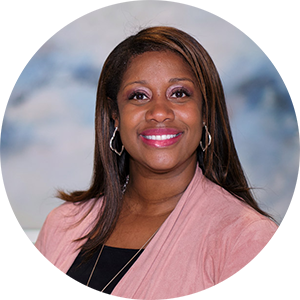
For Erica Taylor, MD, assistant professor of orthopaedic surgery and the PDC’s first associate chief medical officer for diversity, equity and inclusion, her commitment and passion for health care dates back to her high school years. In this week’s Spotlight, Taylor talks about her deep appreciation for diversity, belonging, and inclusion as a physician, professor, and researcher. She also discusses the importance of intercultural relationships when dealing with patients and their families. She also shares her belief that Duke Health has evolved toward a community of belonging.
How and/or when did you develop your current commitment and passion for health care and diversity and inclusion practices?
My commitment and passion for health care dates back to my high school years. I was fortunate to attend Thomas Jefferson High School for Science and Technology, a top magnet school that emphasized education and careers in STEM. At a young age I fell in love with the field of orthopaedic surgery and the connection it had to the principles of engineering I learned. I matriculated to the University of Virginia’s School of Engineering and became very involved in the National Society of Black Engineers as well as the University’s Peer Advisor Program offered by the Office of Minority Programs. With my career goals and engagement in such mentoring-based programming, I developed a sincere passion for increasing the pipeline of women and minorities into the coveted fields of engineering and orthopaedic surgery that has never dimmed.
As I completed my medical degree at Duke and became a surgical resident at UVA, I became more aware of the pervasive disparities in our orthopaedic workforce. I observed inequities within patient care experiences to discrepancies in career advancement opportunities. On the positive side, I also understood the added value of having diverse perspectives working together to solve the complex issues in surgical medicine and hospital system processes.
These experiences certainly contributed to my engagement in the Duke Diversity and Inclusion work that I do today.
Why do you feel a deep appreciation for diversity, belonging, and inclusion has been important as a physician, professor, and researcher at Duke Health?
Having a deep appreciation for belonging and inclusion is essential for physicians and educators at Duke Health, regardless of background and upbringing. There are studies that show our patients benefit from having a diverse workforce. Teams are enhanced by having multiple perspectives at the table. The world is changing at such a relatively fast pace that staying abreast of the issues that affect the communities we serve is critical. As physicians, educators, and researchers at Duke Health, we are positioned well to be leaders of innovation and champions for change in this space.
Related to diversity and equity, how do you believe Duke Health has evolved toward a community of belonging?
Duke Health has placed more emphasis on inclusion and belonging in the recent years, moving away from the traditional metrics of numeric diversity. I find this very productive and encouraging. There is focus on civility and being kind, bringing the humanism aspect of medicine to the forefront of our interactions with patients and each other.
In addition, our departments now have mandates to strategize and implement efforts of inclusion. It is much more commonplace to learn that traditionally homogenous departments such as Orthopaedic Surgery are looking for innovative ways to increase inclusivity – not just at the trainee level, but for faculty recruitment and retention as well. Our department, in addition to many others, are now putting the resources and “walk” behind the “talk.”
As a surgeon and academic medicine leader, how important are intercultural relationships when dealing with patients and their family members?
Intercultural relationships are paramount to provision of optimal patient care. While some may focus on differences, I have found that there are more similarities than distinctions between me and my patients. Being aware of cultural customs and religions is also a part of establishing trust and understanding with my patients. Some will ask me to pray with them, others will communicate the values of their culture that influence decisions in care. Being open, understanding, and demonstrating empathy contributes to building a relationship where communication about treatment options and expectations flows naturally and with honesty.
Outside of Duke, what hobbies and/or interests do you have?
Outside of my roles at Duke Health, I enjoy spending quality time with my children and husband. We dance, laugh, and play as often as we can. I am quite the football fan, but also love challenging Escape Rooms with friends and coworkers. I am a firm believer that our purpose on this Earth is to leave it better than we found it, through kindness, love, and rising to challenges.
This interview originally appeared on the Duke Office for Institutional Equity website.
Related content
Taylor named PDC Associate Chief Medical Officer for Diversity, Equity and Inclusion
PDC Insider [10.27.2020]